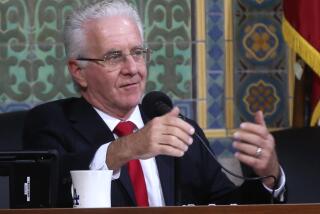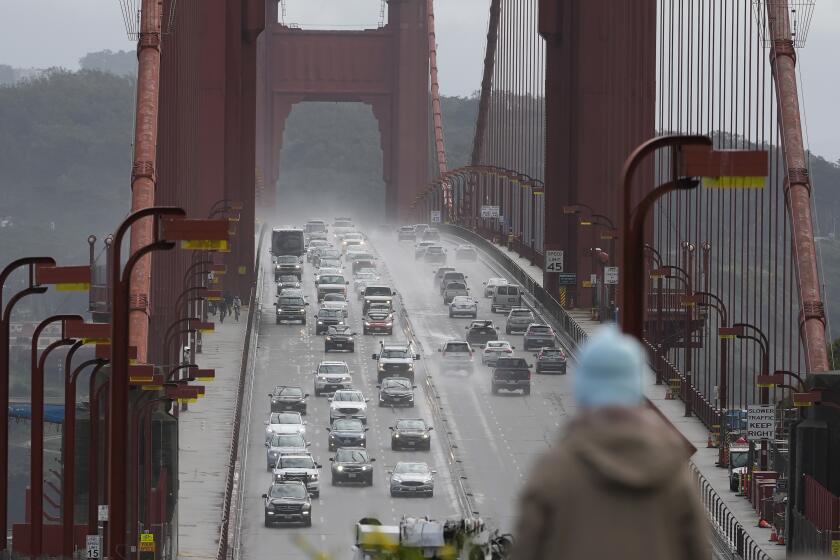Redesigning Our City Government to Work
How can Los Angeles government be redesigned to be more responsive to its residents, more effective in delivering services and more efficient? These questions are driving the current efforts to revise the 72-year-old City Charter.
There is no doubt that the current charter is in major need of overhaul. Adopted in 1925, the document that governs city affairs has been amended piecemeal more than 400 times and now runs hundreds of pages. Many of its provisions are conflicting or redundant. For instance, it requires that the city controller and the treasurer maintain separate systems of accounting for the exact same purpose.
More generally and more important, there is widespread dissatisfaction with the current structure of Los Angeles government. There are serious threats of secession from the San Fernando Valley, San Pedro and Venice. In vastly different neighborhoods, there is a sense that city government is too remote and that communities have too little control over their fates. Neighborhoods want more say, particularly in decisions involving land-use planning, policing and education. Businesses complain that the city’s complex structure and bureaucracy discourage companies from locating within city limits. Business people and residents alike complain that delivery of city services is inadequate.
Charter reform must evaluate and respond to all these concerns and more. Two charter commissions--one appointed by the City Council and the other elected by the voters--are now reviewing Los Angeles government and how it might be changed. Any revisions of the charter must be approved by the voters. If the commissions stay on their current timetable, Los Angeles voters may have a chance in 1999 to enact the first comprehensive charter reform since 1925.
The key issues in charter reform can be grouped under three basic concerns: the accountability, efficiency and responsiveness of city government.
In terms of accountability, charter reform must consider how authority is allocated among city leaders. For example, some argue that the City Council performs too many executive tasks and should be redesigned as a traditional legislative body. Others contend that the division of powers between the mayor and the City Council has helped to limit corruption and has produced one of the cleanest city governments in America.
Another important example concerning accountability is whether the commission system should continue. Do commissions create citizen control over key government functions, such as the police department, or do commissions undermine the mayor’s executive control and defeat accountability?
Increasing the efficiency of city government is another key goal. As in virtually every city today, there is a widespread sense that key services could be better provided. How might this be accomplished? For example, efficiency in contracting might be enhanced by decreasing the number of approvals required in various city departments.
How efficiently the city’s money is being managed is another area for examination. The charter disperses financial authority among many officials, including the city clerk, purchasing agent, controller, city administrative officer, treasurer and departments. The reform process must consider how to simplify financial management, including whether to create a department of finance to handle all of these tasks.
Charter reform also must focus on how there can be a more responsive city government with a more involved citizenry. Voter turnout in Los Angeles elections is terribly low. Would changing the date of elections to coincide with state and federal elections help? There is a perception that Los Angeles government is too removed from the people. Members of the City Council represent more voters than any members of any other city council in the country. Would increasing the size of the City Council increase the perception of a responsive government? Should Los Angeles create some form of neighborhood councils with decision-making authority? Perhaps the hardest and most important challenge facing the charter commissions is how to balance the desire for localized decision-making with the need for central planning and oversight.
No easy answers exist to any of these questions. The charter reform process offers the chance to discuss and debate them and to design the best possible government for the city of Los Angeles. Every resident of Los Angeles will be affected by changes in the charter and both commissions want to encourage public participation at every step. The commissions are holding public hearings throughout the process. All proposals will be circulated for extensive public comment before they are finalized and placed on the ballot.
A city’s charter is its constitution and the charter reform process is our chance to design Los Angeles’ government for generations to come. It’s crucial that we make the most of this moment in history.
More to Read
Start your day right
Sign up for Essential California for news, features and recommendations from the L.A. Times and beyond in your inbox six days a week.
You may occasionally receive promotional content from the Los Angeles Times.






